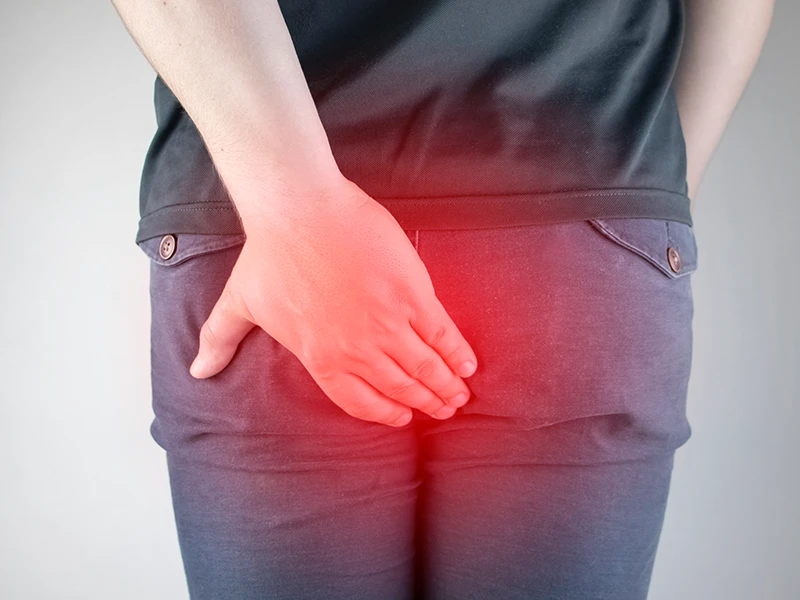Anal Fissure
What is an anal fissure?

An anal fissure is a small tear in the thin, moist tissue (mucosa) that lines the anus or anal canal. An anal fissure may occur when you pass hard or large stools during a bowel movement. Anal fissures can occur in anyone at any age. People who have had fissures in the past are more likely to have them in the future.
Anal fissures can be caused by trauma to the anus and anal canal. The trauma can be caused by one or more of the following:
- Straining to have a bowel movement, especially if the stool is large, hard, and/or dry
- Childbirth
- Anal sex, anal stretching
- Insertion of foreign objects into the anus
While an anal fissure is a condition, it is often a symptom of an underlying medical issue, including:
- Inflammatory bowel disease
- Chronic constipation
- Prolonged diarrhea
- Sexually transmitted diseases
What are the symptoms of an anal fissure?
Anal fissure symptoms include:
- Pain during or after a bowel movement
- Constipation
- Bleeding
- A visible crack or tear in the anus or anal canal
- Burning and itching
- Discomfort when urinating, frequent urination, or inability to urinate
- Foul-smelling discharge
How is an anal fissure treated?
Dr. Meyerson will do a sigmoidoscopy to look in your anus with a flexible sigmoidoscope to determine if you have an anal fissure. If pressure on the anus or anal canal can be reduced, most fissures can heal within several weeks to several months. Taking stool softeners to prevent constipation and ease discomfort and bleeding while passing a stool can help. Applying creams and ointments can also help heal the fissure. In some instances, outpatient surgery may be necessary.
